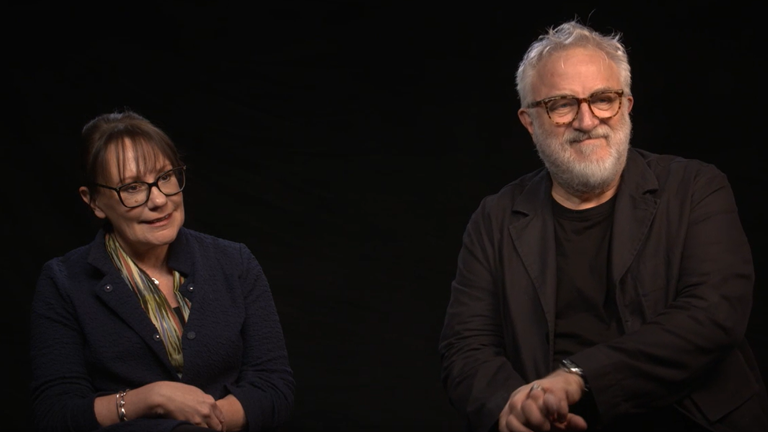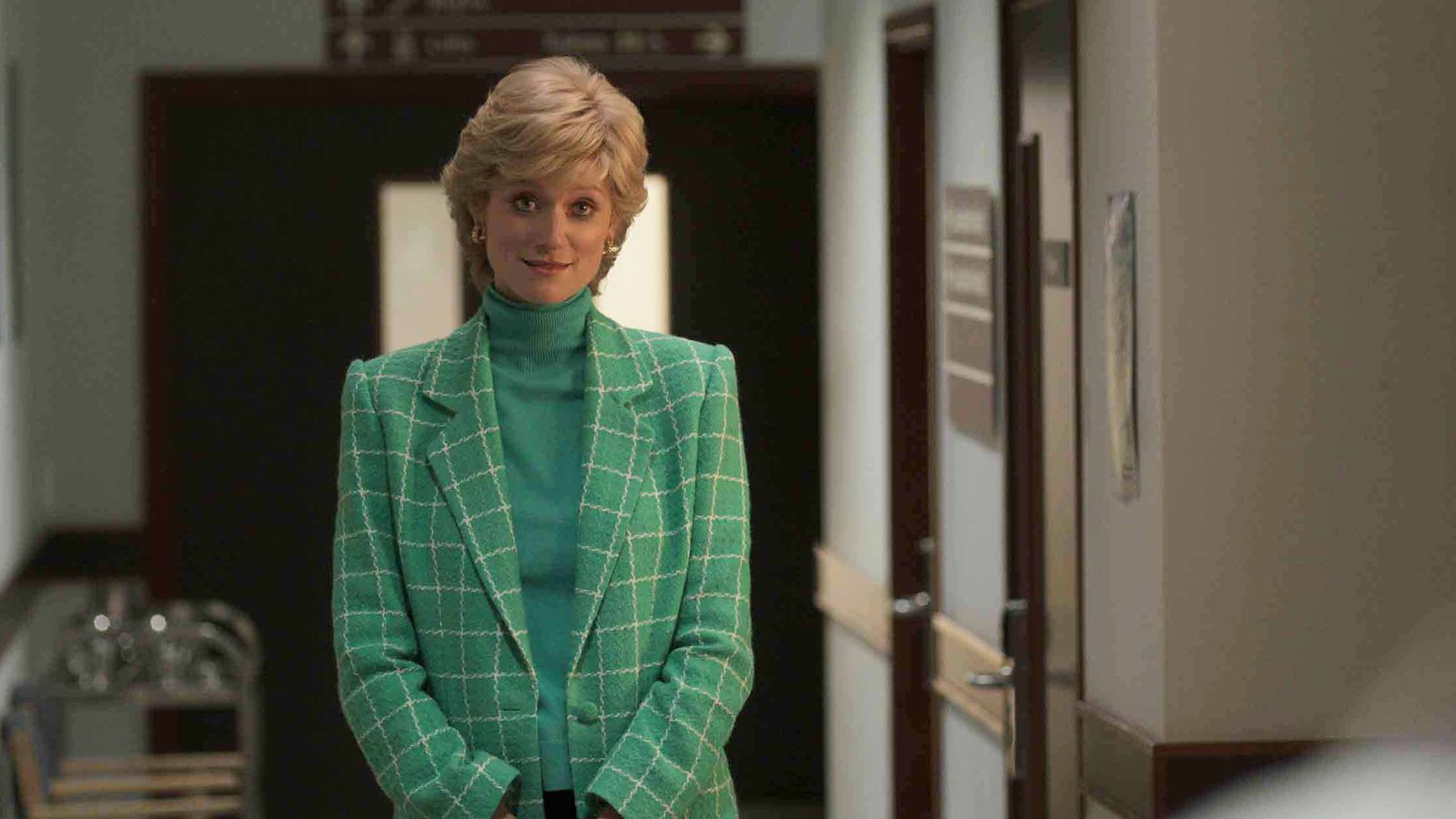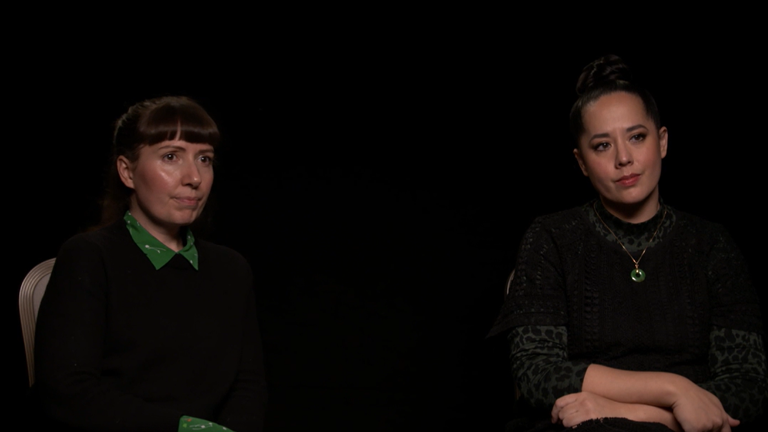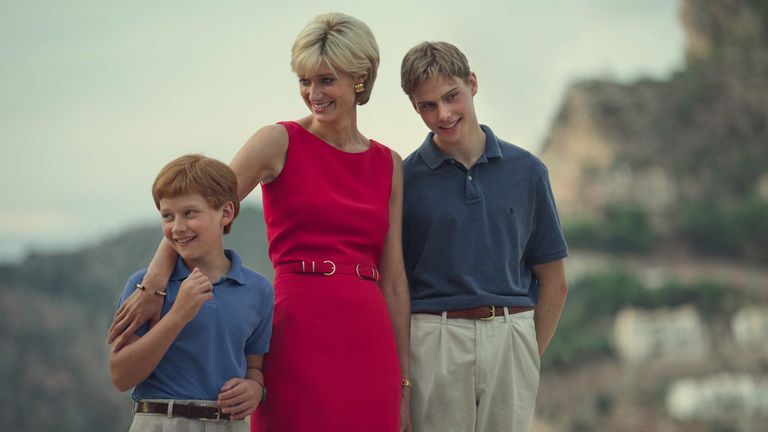
The second instalment of the sixth series of The Crown is set for release on 14 December.
Seven years on from its initial release, the programme has been a smash hit for Netflix and has seen some of the UK’s greatest acting talent – including the three queens Claire Foy, Olivia Colman and Imelda Staunton – take on the challenge of portraying some of the most recognisable people in the world.
Behind the glitzy multimillion-pound production is a vast production team working on the finest of details to capture each decade of the Royal Family precisely.
Martin Childs, a production designer, and Alison Harvey, a set decorator, have worked on all six seasons of the show and produced almost 2,500 sets in that time.
The pair say the “luxury of time and money and people” that the Netflix production affords allows the detailed and spectacular sets we see on our screens.
“We did go through the schedule quite quickly,” Harvey said.
“We did have people devoted to certain things like drapes. [I’m] on a job at the moment – we’ve got no people and no money and no time. So we’re very lucky to have those facilities available to us on such a great well-received project.”
The abundance of resources allows Childs and Harvey to capture not just the familiar castles and regal settings – they were excited to capture the royals’ private interiors as well.
“It’s a kind of a slightly imagined film version,” Harvey said.
“We research and research and research until the research runs out,” Childs said.
“I think it might be Peter Morgan who coined this phrase ‘informed imagination’ – and it’s one I like very much because it helps describe what we finish up having to do,” he added.
The first four episodes of the sixth season were released on 16 November and captured the last eight weeks of Princess Diana’s life.
While many of the scenes from the 1997 crash and its aftermath are seared into the public’s imagination, Childs was averse to recreating many of them.
“My consideration [for] all the scenes that led up to [the crash] was not to have any prior knowledge of it, because the audience does. So I didn’t want to load it with 20-20 hindsight.
“People know what happened. People are familiar with the footage so we didn’t really want to recreate much of that.”
Portraying Diana faithfully was also a major consideration for hair and makeup artists Cate Hall and Emilie Yong. It took around 30 hours to transform Elizabeth Debicki into the late princess.
“It starts with this very archaic wrapping of their head in clingfilm and sellotape and marking the headline with a sharpie. The wig maker we work with is very, very detailed in terms of hairlines, crowns,” Hall said.
“The hair is all knotted hair by hair, we will go through thousands of different colours to find the four or five colours we’re going to use in a wig. Then once the wig is made, we start cutting.
“Then the wig comes off the head and is set and dried, put back on again, cut, highlighted, roots shaded in. And then the makeup fittings start.”
Like the production designers, the pair said they “live and die by” getting the details right.
“Otherwise what you get is something that feels sort of generally in the region of [the decade] but not necessarily robust.
“The whole point when you’re recreating period television is trying to create this world that the viewer can watch and really immerse themselves in. The last thing you want to do is bring them out of that.
“So for me, if I’m watching a TV show and the textures are really modern and chemically sophisticated and illuminated, things like that immediately take me out of the show. So it’s those kinds of details.
“One way of saying we’re in the 1960s [is] about the textures and what was available to the people at the time. Glitter was not. We have every foundation colour under the sun now. But in 1960 you were probably dealing with four different shades if you’re lucky. It’s about sophistication that helps you tell the story,” Hall said.
So the actors have undergone their transformations into their characters and the stage is set but something’s missing.
Click to subscribe to Backstage wherever you get your podcasts
Alongside a historical research team, the actors spend a significant amount of time preparing with movement coach Polly Bennett to prepare for filming.
“When you meet new actors playing the characters, it becomes about actually trying to throw all of that information [from past seasons] away and starting again.
“The best thing about working with the team this time around was that we’d already done season five, so they kind of lived in their bodies,” she said.
“I think the biggest thing physically that I had to consider was that they had been around being famous. Being famous was a new idea.
“The sort of thing that Diana was experiencing is a very particular physical change in her body. So that was the major preoccupation I had.”
Read more:
Royal book row: Publisher ‘called journalist within one hour’ of publishing story
Four most important moments from latest season of The Crown
The Crown recreates Princess of Wales’s famous catwalk dress in final series
A huge body of research, like the production designers and hair and make-up artists, informs Bennetts’s work.
She describes working with 21-year-old Meg Bellamy who is playing a young Kate Middleton as she attends university with Prince William.
“A lot of our first sessions were just providing the space to go – who is this person? What has she been around? What has she grown up around? What clothes is she regularly wearing? What food does she eat? What are her relationships? Who has she seen growing up?
“We look at footage that we have, we look at photographs, and put it together in the kind of private investigator type way,” Bennett said.
“And suddenly when you start looking at different pictures, you notice little things that Kate does in her life, like she wears a handbag always on the same side of her body and she clutches it. Now, that’s something that then became an inpoint for Meg.
“The idea that they’ve got something very practical, but they’re keeping it close to them and then you can take that feeling into their whole life. Whether or not that’s actually what Kate Middleton is doing, that becomes gold dust as a practical idea for an actor to play.”















